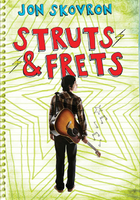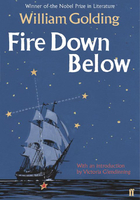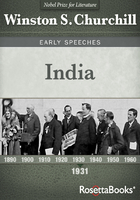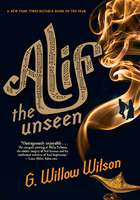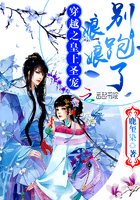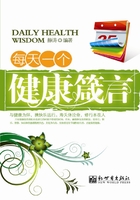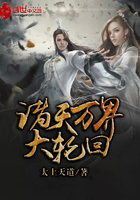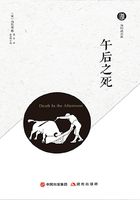To Hans and M?rit Everything Is Wonderful
I have a photograph in front of me from the winter of 1993: a dilapidated barn stands on a snow-covered field, the blue and faint orange of the afternoon sky reflected in the snow. The field is in Estonia, on a former collective farm in a remote area on the west coast. The barn looks isolated and slightly melancholy on the vast field, having survived war, land reform, collectivisation, and, now, privatisation. The photograph is one of many. I also have a diary, and many letters and notebooks.
I lived on the collective farm for a year in 1993–94, gathering material for a PhD in social anthropology about history and memory. I was there to study the local perception and understanding of historical events in the context of the Soviet repression and censorship of history. I wanted to understand how the people on this peninsula understood their history, and how the war and occupations had affected them and their families. My PhD became an academic book, History, Memory, and Identity in Post-Soviet Estonia: The End of a Collective Farm, published by Oxford University Press in 2004. Parts of that book are replicated here. It was based on those same notes and the diary, though purged, of course, of anything personal. I make reference to Orwell in that book and in this, and the same characters appear through the pages. I hesitate to say that this book is more authentic-the real account of what actually happened-since scholarship was as much or more a part of my experience of being there as the daily life in this story. Much as my academic book excluded the personal, this book excludes the academic, but anyone who reads both will see that they overlap to some degree.
Estonia went through a war, and occupations-first by the Soviet Union and then by Nazi Germany-so devastating, and so violent, that nearly a quarter of the population had fled, disappeared, or been killed by the end of it. The population declined from 1,136,000 people to 854,000. Nor did the violence end with peace: the terror and repression continued in the second Soviet occupation. The mass deportation from the countryside in March 1949 was timed to weaken resistance to the planned forced collectivisation. My collective farm, encompassing some twenty villages and most of the land on the peninsula of Noarootsi, was formed shortly after the deportations. It was officially closed down in February 1993, following a vote by all the members in which just one person voted for its continued existence.
I had moved to England from Sweden in 1980. Part of my interest in this particular area was that before the war, some half of the people on the peninsula had been Swedish-speaking, belonging to the Swedish minority of Estonia. The Estonian Swedes lived on the west coast and on the islands they had lived there since the Middle Ages, fishing, trading, and farming. In 1944, in the dying days of the Nazi occupation of Estonia, the majority of the Swedes, some seven thousand people out of a total population of eight thousand, were evacuated by the Nazis. The Swedish government paid a fee per person to the Nazis, and saved the Swedes from the coming Soviet occupation, but the deal was, of course, tainting, and the refugees were encouraged not to talk about it, and to assimilate in Sweden as best they could.
In the early 1990s, on Noarootsi, you could still sense the effects of the evacuation, and the ravages of war and deportations. It was a bleak and depopulated area. Pürksi, where I lived, was the only village on the peninsula that had slightly increased its population since the census of 1934. All the other villages had declined dramatically, the largest shrinking from 480 people to 59, the smallest from 69 to 16. The total population was no more than a few hundred people.
The peninsula had been a Soviet military border protection zone, with limited public access. It had a permanent army base, and there was only one road out to the mainland, patrolled by soldiers on duty by a barrier. The barrier was still there when I arrived, but the soldiers were gone. Before independence, people crossing to the peninsula had to show their papers at the barrier, no matter how well known they were, or how often they crossed over. The coast was heavily guarded. At regular intervals along the whole coastline there were watchtowers with powerful searchlights. In some places people were not allowed access to the sea.
When I first visited Pürksi, in April 1993, there were some signs of progress. There was a new shop, and the church, the vicarage, and the manor house were being restored with funds from abroad. There were, also, many signs of post-Soviet decline. The communal dining room had been closed down, as had the crèche; the weekly cultural programme had been cancelled, the cold and dusty culture hall was empty, and there was little heating or hot water. The ruling Isamaa ("Fatherland") coalition was, people said, "building capitalism." People endured the sacrifices, with not much hope for the future, much as they had when the state was "building socialism." Poverty, and drinking, shortened lives, especially for men. Life expectancy in 1994 dipped to sixty years for men and just under seventy-three years for women. By 2012 it had increased to about sixty-eight and seventy-nine years, respectively.
The centre of Pürksi was a dusty square formed by the school, where I was to work as an English teacher, the culture hall, and the old workshops at the far end. At the back of the culture hall was Gorbyland, the basement bar named after Mikhail Gorbachev, whose attempts to curb the pervasive Soviet alcoholism were considered mildly amusing. There, also, was the rubbish dump; a pile of plastic bags torn apart by the village dogs, lit by a single bleak floodlight at night. There was a new little cooperative shop near the workshops. By the road coming into the village was the dairy, defunct since the 1970s, and the old Soviet shop, selling household stuff as well as some food, pots and pans, exercise books, shoes if they got a consignment, and ancient Russian jars of jams and pickles with rusty lids and falling-off labels. On the wide, low windowsill the alcoholics sat and drank in peaceful camaraderie. The atmosphere was quiet, almost somnolent.
The rest of the villages on the peninsula-bedraggled collections of grey wooden houses with thatched roofs, sometimes propped up by shoddy white brick-were like villages all over the Soviet Union at that particular time: forgotten places sinking into quiet poverty. There were dusty unpaved roads dotted with flaking milk stands, and many abandoned farmhouses slowly decaying in the forest. The poor and the old-people who may have been happy about independence, but for whom the winds of privatisation brought only loss-were bewildered. I can see them now, men and women with blank eyes and black teeth, old shoes stuffed with paper, shuffling slowly through the new supermarket in Haapsalu. The extreme sink or swim austerity of post-Soviet Estonia was ravaging at that time.
I stayed for a year. In the end, I was profoundly relieved to leave, and yet I also sometimes day-dreamed about staying on in that grey and tired modernity. It was so peaceful. People's idea of post-Soviet security was to lock their doors, leaving the key in the outside lock. There was no crime and, in fact, no reason for the kolkhozniks, the collective farm workers, to steal from one another, since no one had anything much to steal. I am not suggesting that it was idyllic-the poverty was harsh, particularly in the cold winter, and although independence (1991) was welcome, most people were impoverished by the changes. The Soviet welfare state, such as it was, had collapsed. Vaccinations and dental care were in disarray. Children's shoes were virtually unobtainable, and if you could find them they cost a month's salary or more. The Estonians had become free, but they were much poorer, and they couldn't then know how temporary that poverty was to be. They were suspicious and antagonistic towards the Russians, but some still talked wistfully of the old days, of hitchhiking across the Soviet Union, and of now-derelict summer camps and holiday resorts. By 1993 independence fervour had died down. The Singing Revolution, as the Estonian independence movement was called, was over. People hunkered down, drank, and endured.
My lasting impression of the collective farm now, so many years later, is of a deeply seasonal community. In the spring, there was an intoxicating sense of opening up, and the realisation that what had preceded it had been a state of near hibernation. The outside again became a public and noisy meeting place after the dark and snow-bound silence of winter. The summer was relentless in its own way; a long heatwave of glaring sun and dry wind day after day. There was a constant dust cloud on the square, and the men burnt to a dark reddish brown, delineated by their shirts. I sat on my shoddy little balcony in the heat, drinking salty Russian mineral water. It could have been some poor 1950s Italian suburb. The bar by the empty harbour had opened, and the season of white nights and drinking had begun.
When I finally left I took with me the glass bottle I had used for milk. For a year I had brought it to the shop, and had it filled it from the steel bucket of milk kept under the counter. I didn't think of it as a souvenir; I genuinely thought it would be useful, but of course I never used it again. I also never opened the cans of sprats I brought back, or drank the now long-lost parting gift of medical spirits. I finished my PhD whilst teaching undergraduates in the department of anthropology at University College London. I published my book based on the PhD, and many articles. I gave talks at conferences and seminars, until I married and had a baby, and drifted into another life.
Now, twenty years later, I am thinking about that strange year again. What was that, that long time of note-taking, of conversations, of writing and teaching in the school? I remember long and dreamy walks through that evocative and tragic landscape, those familiar northern forests. I thought often about Sweden, and about leaving the country where I grew up. There was a slightly punitive sense of doing time, of counting the weeks. But the intellectual stimulation of the discipline of doing fieldwork was intense. I wrote incessant notes, jotting down whole conversations verbatim. I thought, I read.
What was it? I don't know. I was doing fieldwork, but I was also just trying to get by. It was what it was. It was interesting.


